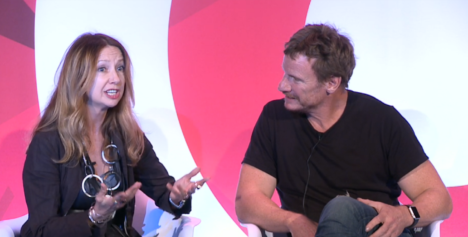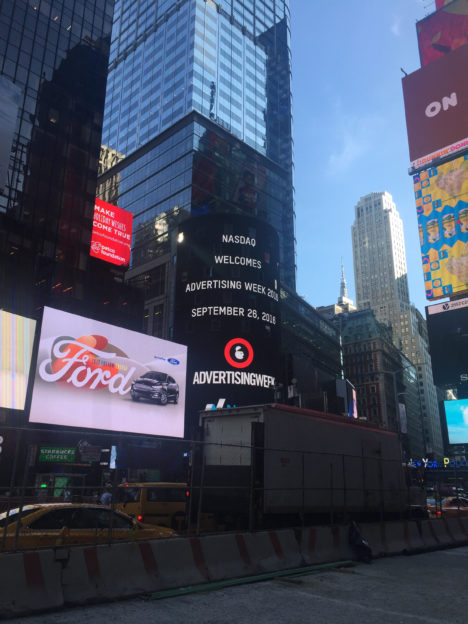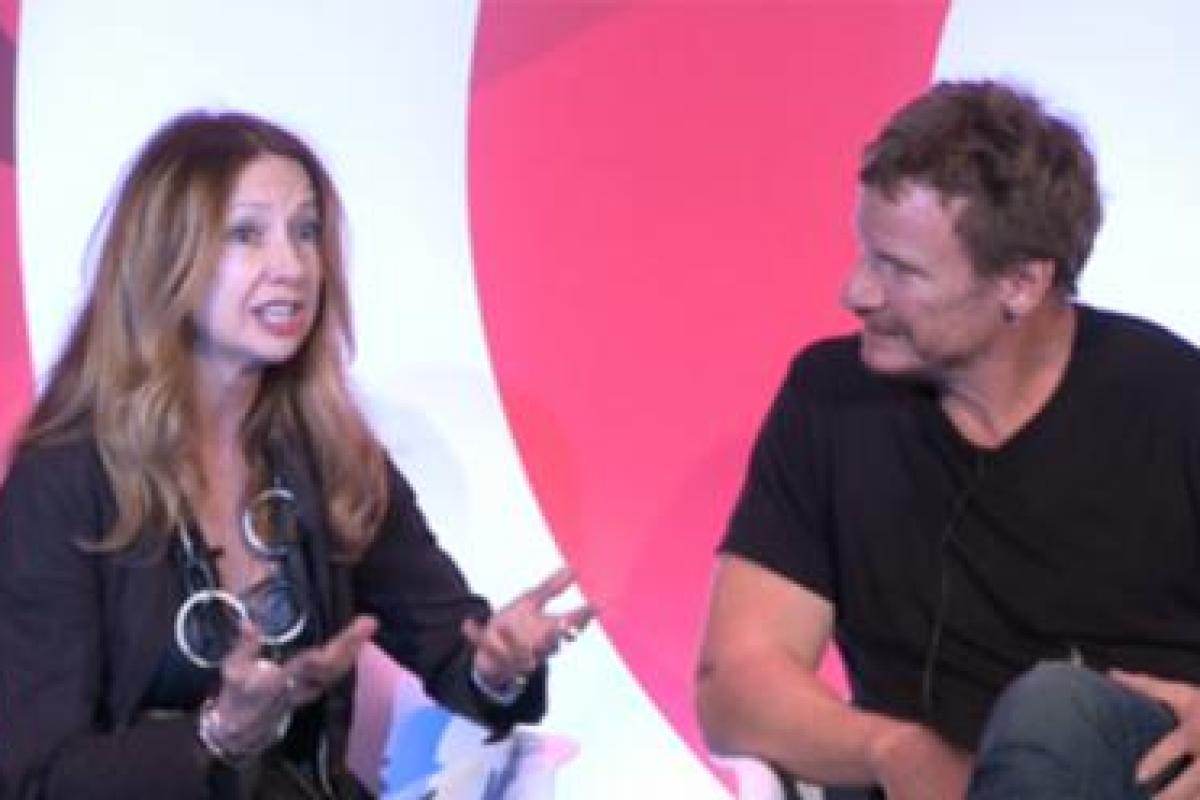One of Australia’s most senior female creative directors has revealed she felt obliged to leave the country in order to progress her career.
Sarah Barclay, now executive creative director at JWT in the US, made the comments at an Advertising Week New York panel curated by Mumbrella.
Barclay’s Australian career included nearly five years as an art director at now defunct Australian agency The Campaign Palace and more than eight years at Clemenger BBDO Melbourne.
But although Barclay made it to group creative director at Clems, she said that in 2000 she felt she had to go overseas. She moved to the US within the BBDO group as group creative director before going to to become global creative director of Saatchi & Saatchi. She moved to JWT in 2008, where her role places her as one of the most senior female Australian creatives in the world.
She told the Advertising Week audience: “For me I’d reached a level in Australia where they weren’t actually recognising women. I had to move somewhere else to get that next level up, which pissed me off back then.

Barclay and Law discuss the differences between Australian and US adland
“It was weird. My partner and I had been listed number 10 creative team in the world at that time and still I couldn’t get that CCO – we call it ECD back in Australia – that top job. I thought ‘bugger you – I’m off’.”
Barclay said that she was now in the US by choice. She said: “I love working in a country with 320 million people, not 23 million. I like the size of the budgets. I like being part of the international world.
“Now I get offers all the time, but I don’t want to go back yet. And I had to leave to get offered that.”
She added: “New York embraces diversity. There’s a welcoming culture.”
Fellow panellists for the panel – featuring Aussies who have made career moves to New York – included R/GA creative boss Nick Law, Mediabrands global CEO Henry Tajer and MailOnline’s Sean Walsh.
Law backed Barclay’s comments about her struggle to get a senior role, saying: “I don’t think it’s changed a great deal.”

Law, who was educated at Randwick in Sydney but has spent most of his career overseas, said of working in the US: “There’s something very open and practical about the spirt of this country. It’s hard not to do well if you come here with talent and a will to succeed.”
And Walsh added: ‘People go out of their way to make you welcome. My wife is from Brisbane. She found it easier to settle in New York than when she moved to Sydney.”
Asked about why so many Australians seem to thrive at a senior level in the US, Tajer suggested that it was partly explained by the smaller Australian operations exposing executives to a wider breadth of the business.
He said: “Most Australian people have a really good all round understanding of most aspects of an agency. In a market the size of US, we’ve had people spent 30 years as the local TV buyer for the Souther Eastern region, and that’s all. That would be equivalent of being southern New South Wales television buyer for all your career.”
Tajer, who took the global role after leading Mediabrands in Australia, said his Australian directness had initially caused ripples. He said: “Blunt is sharp here. In my first couple of months, people were shocked about how open and direct I was about what we should and shouldn’t do, and for some people that was really confronting.”
Tajer admitted: “The US feels a lot more innovative to be honest. There’s an openness and what I’ve found is that people lean in to innovation, and it’s on the agenda. It’s a lot harder in a market like Australia. Australians are more risk averse. We’re seeing a lot of risk being taken around innovation and that’s celebrated a lot more loudly here than at home.”
Law agreed with Tajer, saying: “A lot of clients in Australia belong to a duopoly. You don’t get that big influx of challengers from below. In Australia, friendly competition between big entities has stalled some innovation. Structurally there’s something about business culture that is just not as excited about innovation.”
The video of the session can be viewed on the Advertising Week website. This piece first appeared on Mumbrella's site here.
The video of the session can be viewed on the Advertising Week website. This piece first appeared on Mumbrella's site here.
